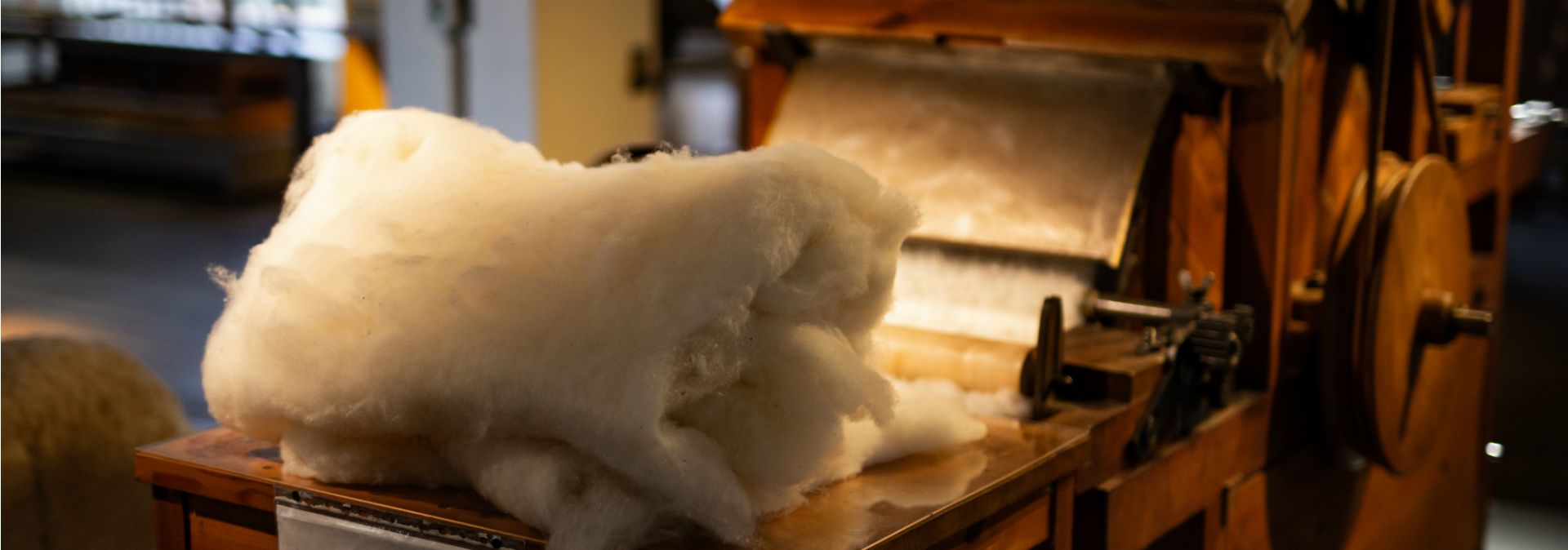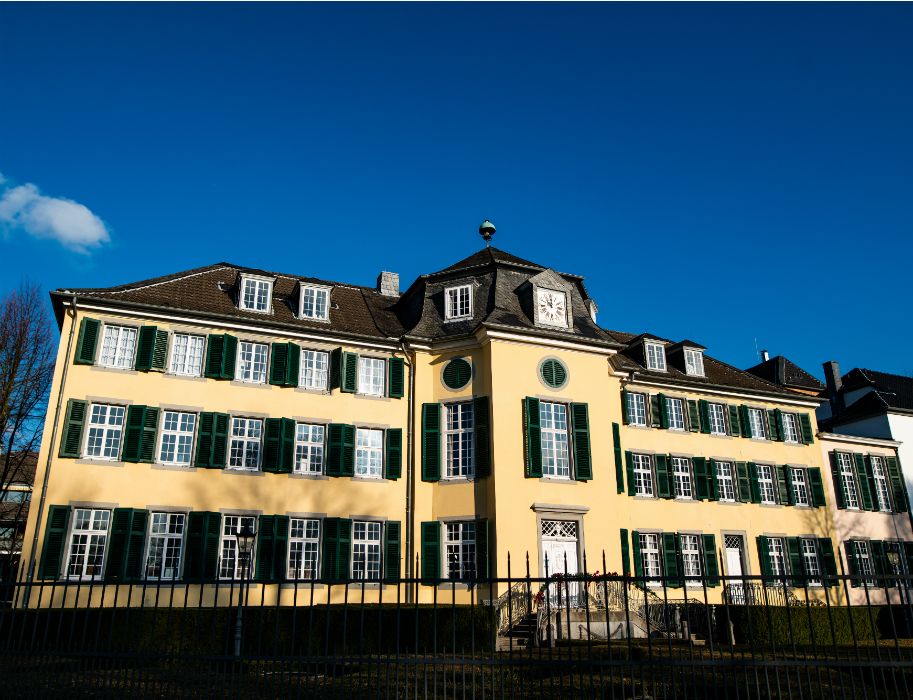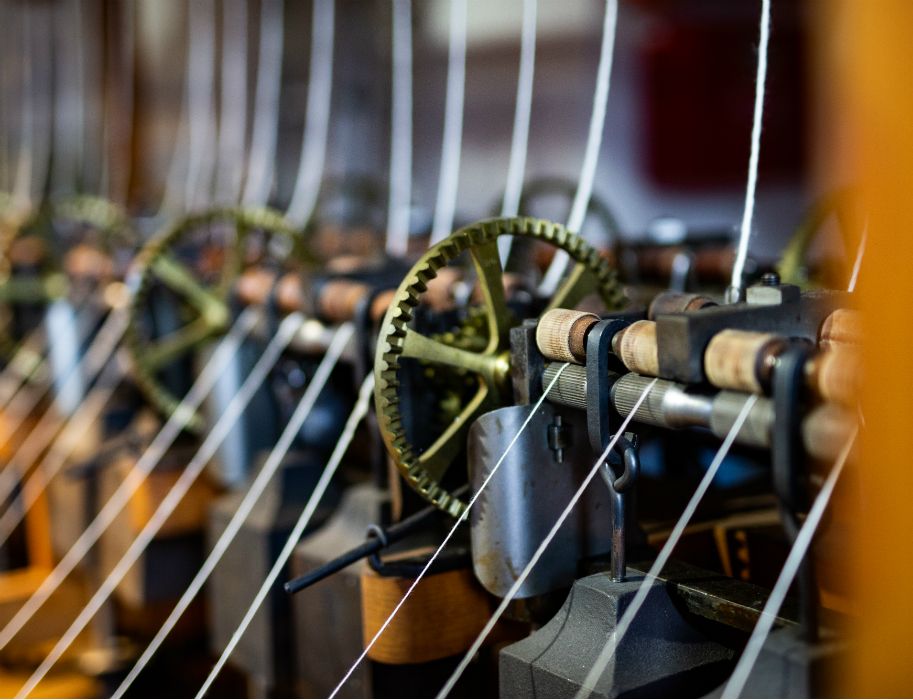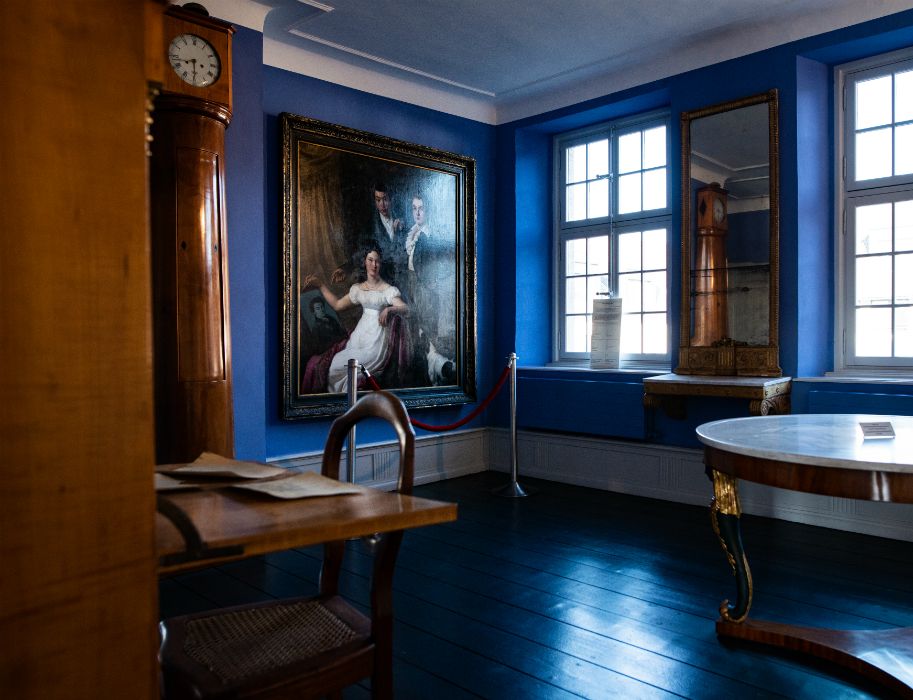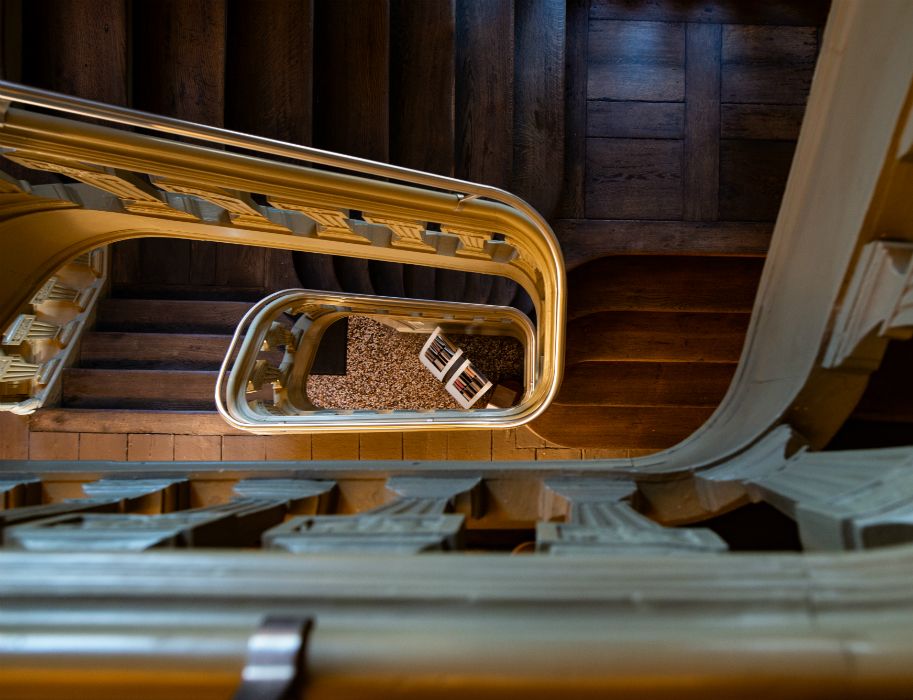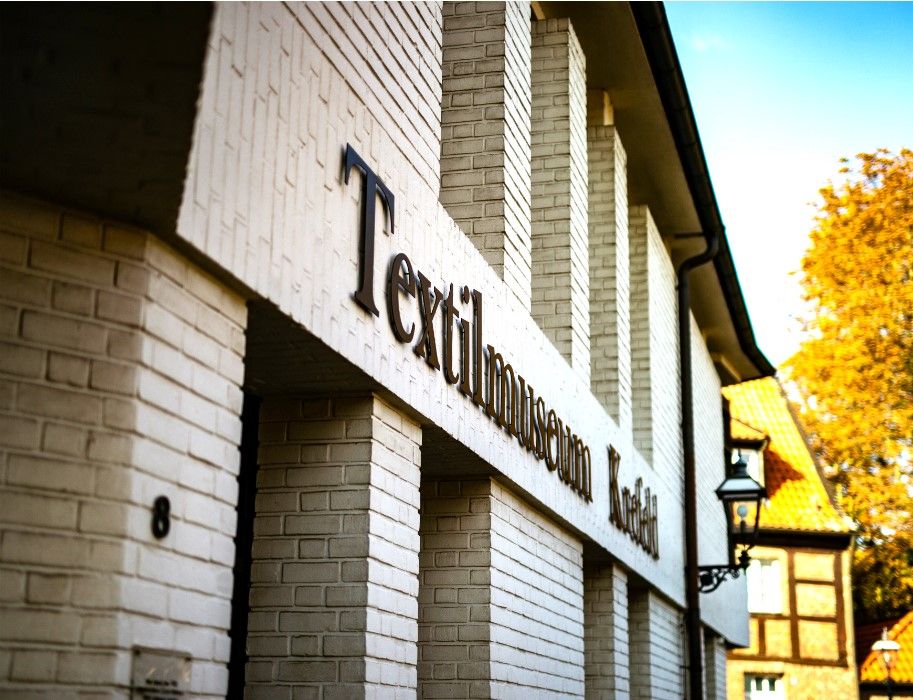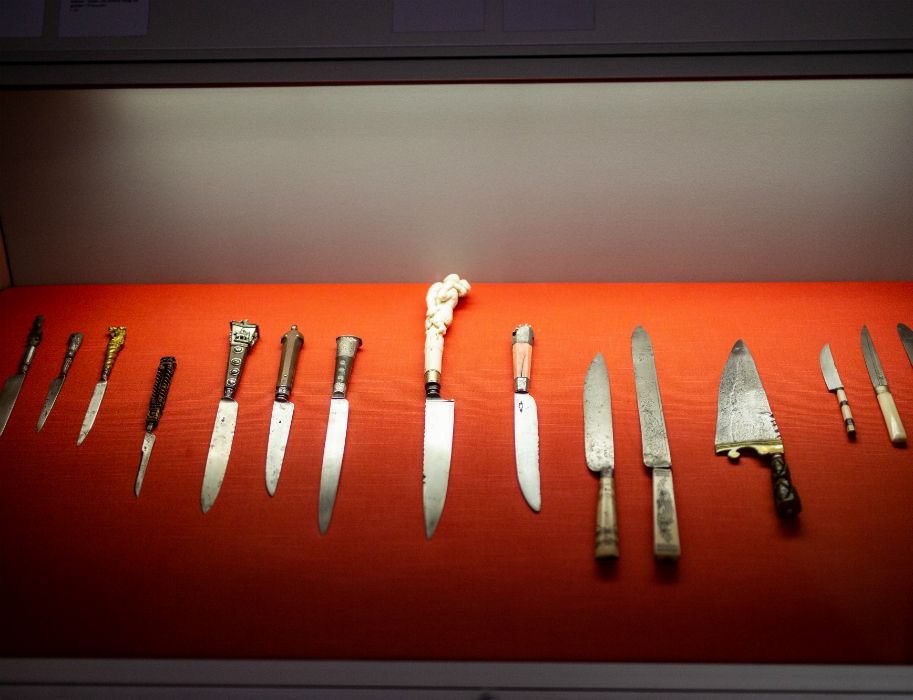The cotton spinning mill in Ratingen is considered to be the first factory on the European continent. Built in 1783/84 by the Wuppertal entrepreneur Johann Gottfried Brügelmann, the early industrial plant is still almost completely intact. The Cromford textile factory shows visitors how cotton is processed from raw material to finished yarn using faithfully reproduced machines from the 18th century.
Johann Gottfried Brügelmann was a resourceful entrepreneur. When he heard about the development of the so-called "water frames" by the Englishman Richard Arkwright in the late 18th century, he sent his own people to Cromford in England to procure construction plans and models of the first fully mechanical spinning machine. The result of this case of industrial espionage can still be seen today in Ratingen, the German Cromford: In the LVR Industrial Museum Textile Factory Cromford. Nestled in an English landscape park, the High Factory is where visitors can once again experience live how spinning machines driven by a water wheel spin cotton into fine threads.
Exporting yarn to the world
The establishment of his factory brought Brügelmann some wealth. The yarn manufacturer became one of the most successful entrepreneurs in the Bergisches Land and was soon supplying his yarn to customers all over Germany and the world. The magnificent manor house that Brügelmann had built right next to the factory in the style of an aristocratic late baroque pleasure palace bears witness to the lavish lifestyle of the manufacturer's family. Many exhibits - from the prestigious desk to the classical landscape painting - and the two-storey garden hall reflect the stately life in the "control center" of Germany's oldest factory.
Next door, in the five-storey "High Factory", it was mainly women and children who were exposed to the dangerous work on the machines with their sharp teeth, open gears and drive belts, as well as the cotton dust. Visitors get a vivid impression of their everyday life when the large water wheel slowly starts to move and the monotonous whirring and rattling of the spindles begins.
